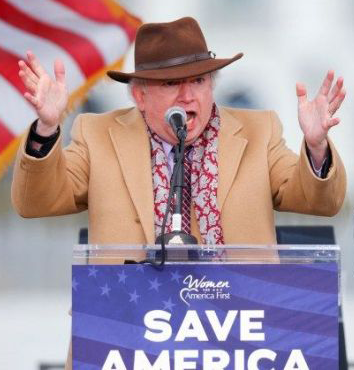
U.S. Senate
See Full Big Line
(D) J. Hickenlooper*
(R) Somebody
80%
20%

Governor
See Full Big Line
(D) Joe Neguse
(D) Phil Weiser
(D) Jena Griswold
60%
60%
40%↓

Att. General
See Full Big Line
(D) M. Dougherty
(D) Alexis King
(D) Brian Mason
40%
40%
30%

Sec. of State
See Full Big Line
(D) George Stern
(D) A. Gonzalez
(R) Sheri Davis
40%
40%
30%

State Treasurer
See Full Big Line
(D) Brianna Titone
(R) Kevin Grantham
(D) Jerry DiTullio
60%
30%
20%

CO-01 (Denver)
See Full Big Line
(D) Diana DeGette*
(R) Somebody
90%
2%

CO-02 (Boulder-ish)
See Full Big Line
(D) Joe Neguse*
(R) Somebody
90%
2%

CO-03 (West & Southern CO)
See Full Big Line
(R) Jeff Hurd*
(D) Somebody
80%
40%

CO-04 (Northeast-ish Colorado)
See Full Big Line
(R) Lauren Boebert*
(D) Somebody
90%
10%

CO-05 (Colorado Springs)
See Full Big Line
(R) Jeff Crank*
(D) Somebody
80%
20%

CO-06 (Aurora)
See Full Big Line
(D) Jason Crow*
(R) Somebody
90%
10%

CO-07 (Jefferson County)
See Full Big Line
(D) B. Pettersen*
(R) Somebody
90%
10%

CO-08 (Northern Colo.)
See Full Big Line
(R) Gabe Evans*
(D) Yadira Caraveo
(D) Joe Salazar
50%
40%
40%

State Senate Majority
See Full Big Line
DEMOCRATS
REPUBLICANS
80%
20%

State House Majority
See Full Big Line
DEMOCRATS
REPUBLICANS
95%
5%
 August 01, 2023 03:07 PM UTC
August 01, 2023 03:07 PM UTC 11 Comments
11 Comments
Dave keeps digging that hole but you can’t blame him solely, his enablers are plentiful.
Unaffiliated voters make up over 40% of Colorado’s electorate, seems like an awfully large group to disenfranchise.
BOTH Democratic and Republican Active Voter registrations are just over half of the total:
27.23% (D) + 24.08% (R) = 51.31%
Unaffiliated Active Voter registrations are now 46.88%. That is about 4.5% short of the equivalent of the two major parties combined. UAF voter share goes up about .15 to .20 per month, and gained 1.85% in the past year. R voter share goes down — about 1% in the past year. D voter share is down about 1.5% in the past year. [I'll leave the mathematical trend analysis showing when the UAF outnumber D & R together as a brain teaser to anyone who cares.]
What happened to their attempt to change the party's rules to say that no-shows on the central committee counted as "aye" votes?
You have posted a photo of Co-Conspirator # 2 in the latest Trump indictment.
Yeah, I saw that Eastman is co-conspirator 2. I wonder how that will play into this Colorado case.
And I don’t think I could sum up Eastman any better than to say he’s the Number 2 man, cause he sure is a pile of 💩
If the Republicans/Trumpists want to have their own private primary, shouldn’t they have to pay for it?
You know …with the $55,000 they have in their bank account.
That's how it should work.
Absolutely! Does no one remember when Colorado citizens voted for this back a few years ago, one of the main considerations was that WE pay for both parties' primary costs, so even unaffiliated voters should get to vote in one?
“Winning this suit would exclude unaffiliated voters from both major parties’ primaries.”
Whatever. I will just return to frequently switching my party affiliation. Online. Easy peasy.
I am still going to vote in the most “interesting” primary.
"Winning this suit would exclude unaffiliated voters from both major parties’ primaries." Or, the Democratic party uses the Republican playbook to announce that anybody who is registered as Unaffiliated is automatically counted as a Democrat for purposes of primary voting.
"Winning this suit would exclude unaffiliated voters from both major parties’ primaries."
Not true. There is actually a US Supreme Court case from the 1980's that held that one party could close or open its primaries regardless of what the other did or what state mandated. I think it was called Connecticut Republican Party v. Tashjikian.
Ironically, it was the state GOP that wanted to invite unaffiliated voters to participate in their primaries while the state Dems did not.